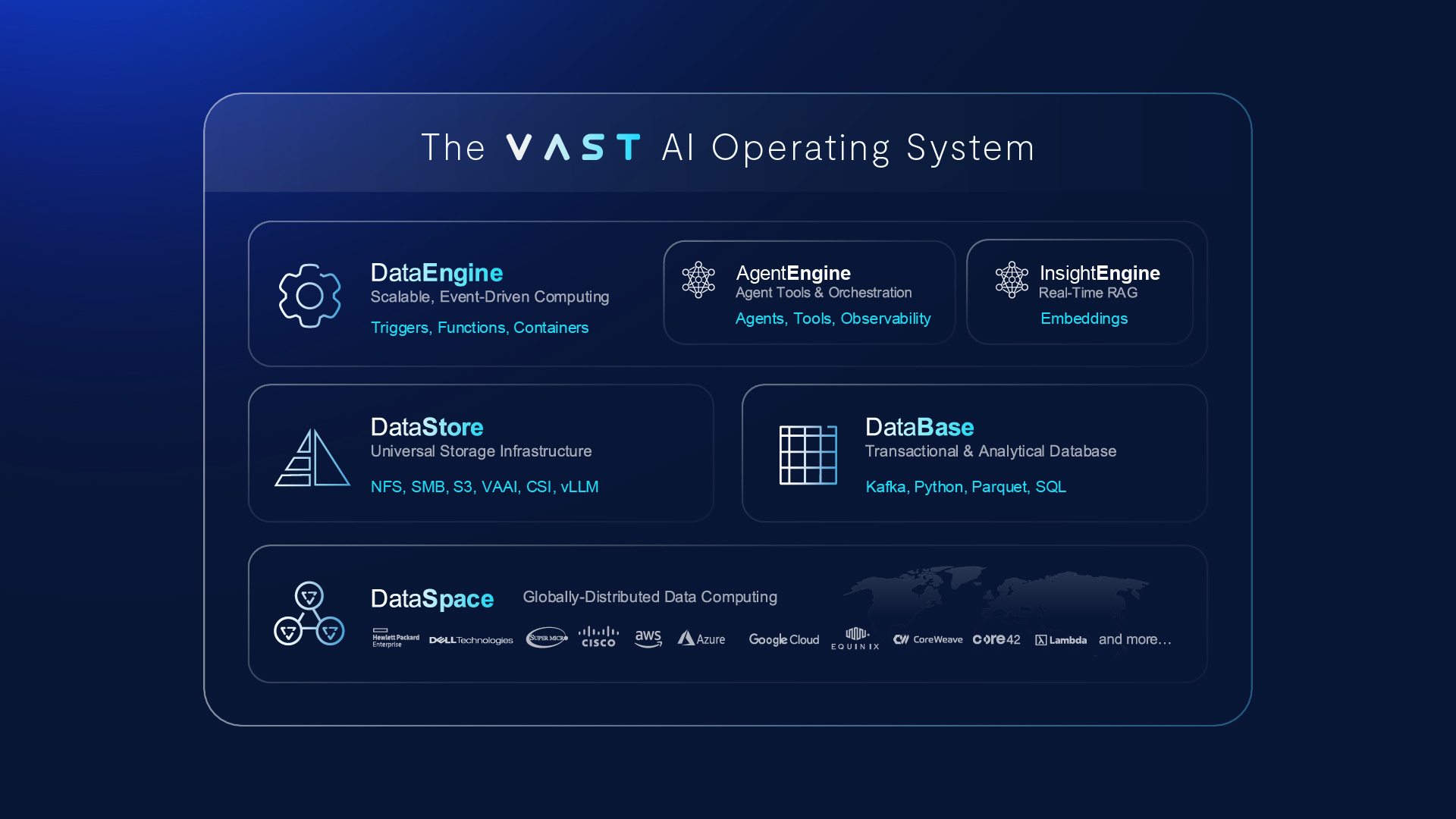VAST Data Introduces AI Operating System for Advanced Computing

VAST Data has unveiled its new AI Operating System, a platform designed to drive the next generation of AI advancements. Announced in a press release, the system aims to simplify and scale AI operations by integrating data, compute, and messaging into a single, cohesive platform.
The VAST AI Operating System is built on the company's Disaggregated Shared-Everything (DASE) architecture, which supports over a million GPUs globally. This architecture allows for parallel processing of AI and analytics workloads, enabling the system to handle vast amounts of data efficiently.
A key component of the new operating system is the VAST AgentEngine, which provides a low-code environment for deploying AI agents. These agents can perform various tasks, such as data engineering and compliance, and are designed to operate at a global scale. VAST plans to release one open-source AI agent per month to enhance the system's capabilities.
This launch marks a significant milestone for VAST Data, reflecting the company's rapid growth and its commitment to advancing AI technology. The new operating system is positioned to democratize AI by making it more accessible and operational at an unprecedented scale.
We hope you enjoyed this article.
Consider subscribing to one of our newsletters like Daily AI Brief or AI Programming Weekly.
Also, consider following us on social media:
Subscribe to Daily AI Brief
Daily report covering major AI developments and industry news, with both top stories and complete market updates
Whitepaper
Stanford HAI’s 2025 AI Index Reveals Record Growth in AI Capabilities, Investment, and Regulation
The 2025 AI Index by Stanford HAI provides a comprehensive overview of the global state of artificial intelligence, highlighting significant advancements in AI capabilities, investment, and regulation. The report details improvements in AI performance, increased adoption in various sectors, and the growing global optimism towards AI, despite ongoing challenges in reasoning and trust. It serves as a critical resource for policymakers, researchers, and industry leaders to understand AI's rapid evolution and its implications.
Read more
